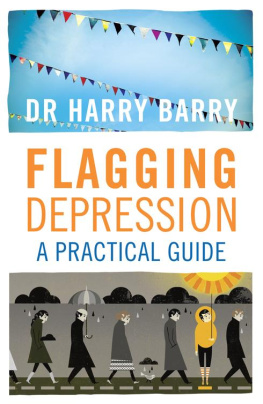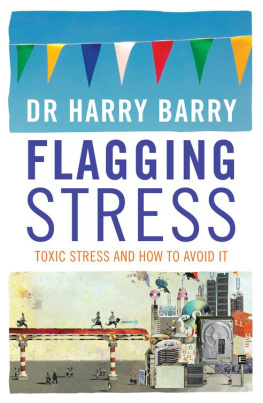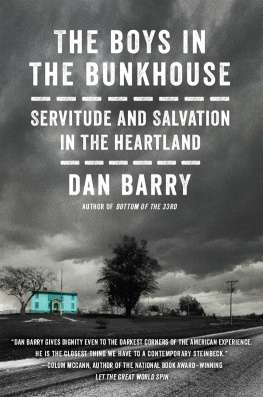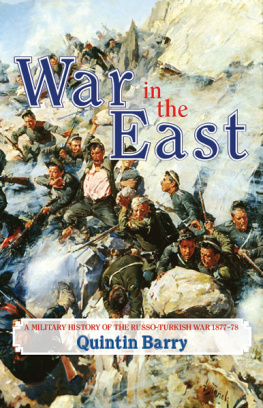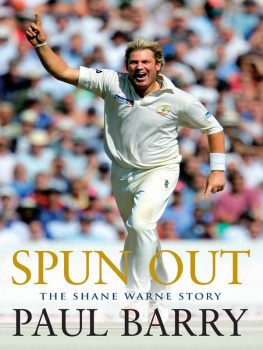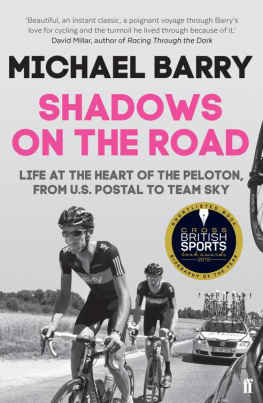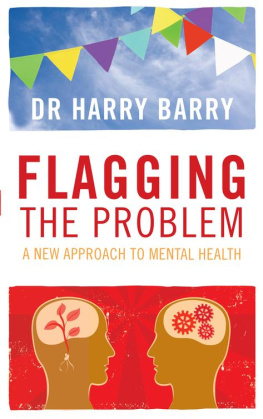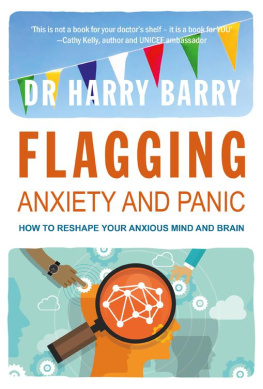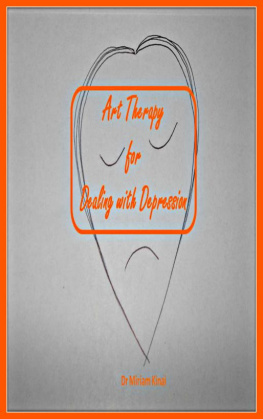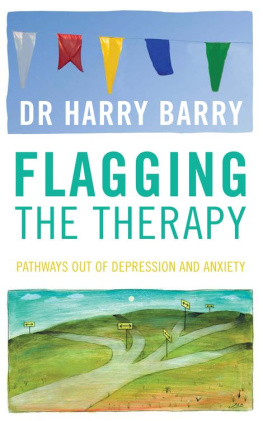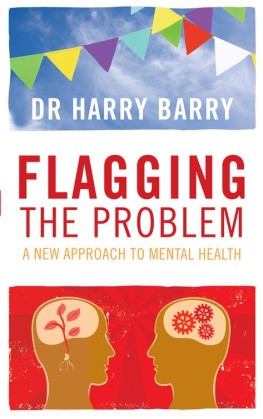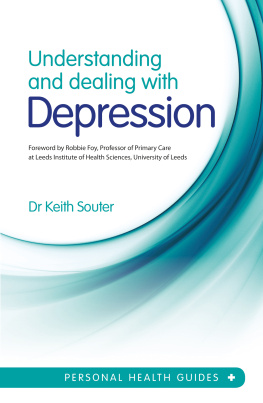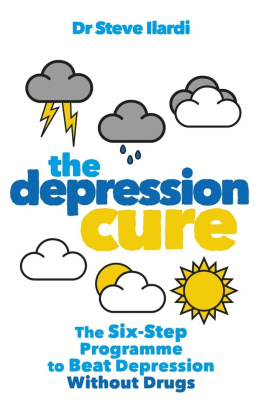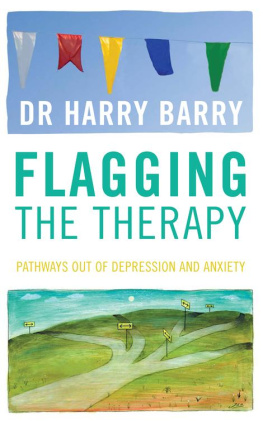If I were to recommend just one book to read on depression, it would be this. Writing with the empathy, intelligence and non-judgemental insight that we now expect from him, Dr Barry shows that he has not only listened very carefully to those who suffer from depression and understood their distress, but has spent much effort compiling a practical guide devoted to coping with, and recovering, from this distressing condition.
Depression is one of the most significant public health problems in Ireland. Flagging Depression is a truly amazing book for those with an interest in the topic of depression. The book comprehensively addresses the topic and it is obvious that the author is both well informed and has deep empathy with those who experience depression; either those who are diagnosed with the condition or those who have family members or loved ones who experience the unique phenomenon This is not just a book about depression or one which enhances knowledge about the topic; it is a practical guide to understanding and managing this complex area of mental distress. It is skillfully written in a caring, meaningful and supportive style, which reveals the significant professional background of Dr Barry in this field. It is a must-read for anyone who would like an in-depth understanding of the journey into and out of depression. I wholeheartedly recommend this book to a professional and non-professional readership.
I would like to start by thanking my editor Sean OKeeffe and the staff of Liberties Press for personally overseeing the editing of my ramblings and turning it into the book it now is. I also thank Caroline Lambe of Liberties for her invaluable help with media and marketing.
I would like to say a special thank you to Paul Kelly of Console for taking the time out of his very busy schedule to write a foreword for this book. He is a very special person whose response to personal experiences of suicide was to create that wonderful organisation Console, which does so much invaluable work to help those bereaved by suicide. They should be supported by us all in every way possible.
I would also like to thank Dr Muiris Houston for taking the time to review the text, and for his friendship and support. His reports in the excellent Irish Times Health Plus supplement are respected by us all. And I include a special word of thanks to Carol Hunt of the Sunday Independent for her kind review and constant support. We are lucky to have journalists of this quality in Ireland. I would also like to say thank you to Maria Carmody for taking time out of her busy schedule to review the text. I send warm thanks to Cathy Kelly for her support throughout the years. I would like to thank my old friend Dr Tony Bates for his support and encouragement. His work with young people with the organisation Headstrong deserves our full support; it is a blueprint of what youth mental health services should be all about.
I am, as always, indebted to my friend and colleague Enda Murphy (and his wife Mei), creator of the Raggy Doll concept, for his invaluable assistance. I also include my Raggy Doll GP course colleagues, who make up a special group which is interested in bringing a new vision on mental health to Ireland. I would like to mention all at Aware, of which I am a director: our chairman David, Dominic, Annette and the other hard-working members of the board and the many wonderful volunteers throughout the country.
To my loyal and devoted staff at 5 Leland Place Fiona, Carmel, Susan, and my practice nurse Brenda for all their help and support throughout the period of writing this book. I am delighted to welcome my new partner and colleague Dr Ruairi Hanley, who has shared my workload. I am indeed fortunate to have such a wonderful team at my back.
To my mother-in-law Ciss Lahart (Eyrecourt), who continues to show great courage in coping with significant illness, for her help and support down through the years, and to all our friends and relatives (particularly my brothers Gerald and Kevin), who have backed this project. To those who are not here to share it with us: my mum, who lost her battle with dementia, my brother David, my dad Harry, my father-in-law Nicholas, and my spirit guide Sister Kieran Saunders MMM.
I say a special thanks to my son Daniel, whose superb diagrams adorn this and all my other books, and to my son Joseph, who is advancing his career in Germany, and Sue, who shares in his life. To my daughter Lara, her husband Hans and baby Ciaran, who has lit up all our lives. Brenda and I are very proud grandparents!
As always, I reserve my biggest thank you for my wife Brenda, whose love, friendship, support, encouragement, and particularly patience have made this book possible. You are my light in the darkness, and truly a soulmate. Mo ghra, mo chroi.
Imagine that you are out hill walking and become separated from your companions. It is late in the afternoon and dusk is approaching. In your haste to catch up, you trip, tumble and twist your ankle. The pain is excruciating and you find it difficult to walk. The panic increases as you struggle to continue. Will night fall before you reach a place of safety? Will anyone realise that you have become lost and are in pain?
Soon the effort required to walk becomes too much. You end up finding a spot that gives some shelter, and curl into a ball. It grows dark. The air temperature falls, and your feeling of isolation grows.
Soon it is pitch black and the fear and terror that you have tried to suppress arrive. Your thoughts become increasingly hopeless. I am going to die out here on the mountain alone, in pain and in darkness. There is no hope. They will never find me. You have no phone and no way of contacting those you love. It is so lonely out here. I dont want to die.
Your logical mind tells you that if you hang on long enough, the long hours of night will give way to the dawn. Eventually the sun will reappear, and with it light and warmth. But your emotional mind has already given up. It will be too late: you will not survive the bleakness, cold, pain and isolation. You dont think about money or possessions, or about how successful or not you are in your career; rather, you think about those you love and how precious life is. You may even start to pray to whatever god you believe in for there are no atheists in a foxhole , as any soldier will tell you.
The reality is that in such a situation, without help, there is a real chance that some of us may not make it. We have to depend on our own reserves of energy and resilience. We also have to rely on others to notice that we are missing and to come to rescue us from our difficulties. In such dangerous terrain, we may well need a guide who knows the ground. They may appear in the middle of the night with a search party, bringing heat, light and food to help us survive the journey back to civilisation . Even with all of these, the journey may be painful and fraught with difficulty.
This is where so many with depression find themselves. They can relate to the darkness, cold, pain, bleakness and isolation and the terror that they are truly lost and will never make it to the dawn. But above all it is the darkness that is so frightening for them. For many, this darkness is caused by the absence of love in their lives. It is not the love of others that is absent rather, acceptance and love of themselves. Once the sunlight of love is hidden by despair, the darkness becomes absolute. Will we ever see the dawn, with its promise of warmth and light?

